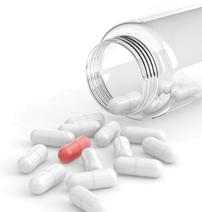25th May 2009
Pet Poisoning - Nicotine Poisoning
A veterinary pet insurance company reports that pet poisoning in the UK has been continuously rising over the past few years. It is conceivable that this is also true in other countries.
Proper storage of medications and drugs, including ash trays can prevent many incidents of pet poisoning in your home. The toxic level of nicotine for dogs is reported to be 5mg/lb body weight. For dogs, a dose of 10mg of nicotine is potentially lethal.
 One cigarette contains 15 to 25 mg of nicotine, a cigar 15-40mg, a cigarette patch between 8-114mg. A cigarette butt contains 4-8 mg of nicotine, depending on its length and content in the original cigarette. Since smoking concentrates nicotine, cigarette butts contain relatively higher amounts of nicotine. Chewing tobacco contains between 6 and 8 mg of nicotine.
One cigarette contains 15 to 25 mg of nicotine, a cigar 15-40mg, a cigarette patch between 8-114mg. A cigarette butt contains 4-8 mg of nicotine, depending on its length and content in the original cigarette. Since smoking concentrates nicotine, cigarette butts contain relatively higher amounts of nicotine. Chewing tobacco contains between 6 and 8 mg of nicotine.
Other common nicotine-containing products are nicotine chewing gum (with 2-4mg nicotine per piece), nasal sprays (0.5mg per spray, 80-100mg per bottle), and nicotine inhalers (4mg per puff, 10mg per cartridge).
Signs of nicotine toxicity are dose dependent and include tremors, weakness, depression, stumbling, lethargy, hyperactivity, fast or difficulty breathing, drooling, dilated pupils, diarrhea, seizures, collapse, decreased or increased heart rate, and vomiting. These signs begin usually within one hour after ingestion, when many dogs vomit naturally. Untreated, nicotine toxicity can cause paralysis of the breathing muscles and consequently death.
 Some animals do not show symptoms for hours after exposure to toxins. Therefore, it is best to bring your pet to a veterinarian if you saw or suspect that your pet ingested nicotine or was exposed to any other drug, even if you do not yet notice any symptoms. Always collect and bring along to your veterinarian all packaging or containers involved, as well as any material your pet may have chewed on or vomited. This additional information can be essential for the most effective treatment.
Some animals do not show symptoms for hours after exposure to toxins. Therefore, it is best to bring your pet to a veterinarian if you saw or suspect that your pet ingested nicotine or was exposed to any other drug, even if you do not yet notice any symptoms. Always collect and bring along to your veterinarian all packaging or containers involved, as well as any material your pet may have chewed on or vomited. This additional information can be essential for the most effective treatment.
Treatments include induction of vomiting, bathing (if exposure was dermal), pumping the stomach, delivery of activated charcoal, IV fluids, breathing support with ventilation, oxygen, and seizure control measures.
Prevention includes proper storage of all drugs in your home, car, and garden, as well as proper supervision in public areas such as in parks, beaches, streets.
For a fee, ASPCA offers a consultation for immediate assistance at 888-426-4435 and also sells an emergency first-aid kit for your pet (https://www.aspcaonlinestore.com/index.php?productID=1930).

